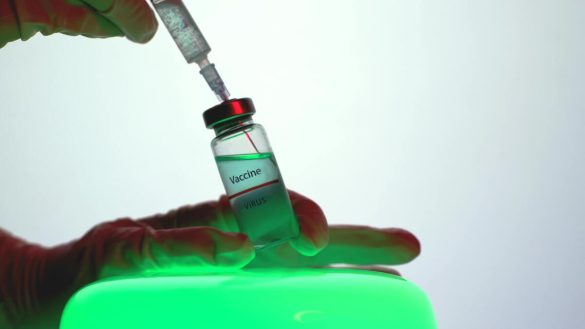Introduction
In a landmark development for the Multiple Sclerosis (MS) community, a vaccine targeting the Epstein-Barr virus (EBV) has entered Phase III clinical trials, aiming to prevent the onset of MS in at-risk individuals. This follows a growing body of evidence confirming EBV’s causal role in MS development.
The new vaccine, developed by Moderna in collaboration with the NIH, could be the first preventive approach to MS that doesn’t rely on immune suppression but rather tackles one of the potential root causes.
The Link Between Epstein-Barr Virus and MS
EBV is a herpesvirus that infects over 95% of adults globally. While it typically causes infectious mononucleosis (“mono”), researchers have increasingly implicated EBV as a necessary trigger for MS.
Landmark Study (Harvard, 2022):
- Tracked 10 million U.S. military personnel over 20 years
- Found that those infected with EBV had a 32-fold higher risk of developing MS
- Other viral exposures showed no such link
EBV may alter immune function and molecularly mimic myelin proteins, triggering an autoimmune attack on the central nervous system.
The Vaccine: mRNA-1189
Moderna’s mRNA-1189 vaccine uses the same mRNA technology as its COVID-19 vaccine, targeting glycoproteins on EBV’s surface to prevent infection.
Key Targets:
- gp350 (major envelope protein)
- gH/gL complex and gB (for viral entry inhibition)
This multivalent approach makes it harder for the virus to evade immune detection and improves vaccine efficacy.
Phase III Trial Design: PREVAIL-MS
Trial Details:
- Name: PREVAIL-MS
- Enrollment: 5,000 participants
- Start Date: February 2025
- Locations: 15 countries across North America, Europe, and Asia
- Eligibility: EBV-negative individuals ages 12–30 with a family history of MS or mono history
Participants will be tracked over 5 years for:
- EBV infection status
- Onset of clinically isolated syndrome (CIS)
- MRI evidence of demyelination
Why This Matters for MS Prevention
Until now, all MS therapies have targeted the immune response after disease onset. This vaccine could:
- Prevent MS entirely in high-risk populations
- Decrease EBV-related immune dysregulation
- Offer protection against other EBV-linked diseases, like Hodgkin lymphoma and lupus
If successful, mRNA-1189 could rewrite the playbook for MS strategy—from reactive treatment to proactive prevention.
Previous Phase I/II Results
Moderna’s earlier trial phases showed:
- Strong neutralizing antibody responses
- Durable immunity up to 18 months
- Mild side effects (injection site soreness, fatigue, fever) in <12% of participants
Importantly, no EBV infections occurred in vaccinated individuals, compared to a 7.4% infection rate in the placebo group.
Expert Perspectives
Dr. Elisa Rothman, a neuroimmunologist at UCSF, notes:
“If this vaccine reduces EBV-driven immune dysregulation, we might prevent MS before it starts. It’s the holy grail of autoimmune prevention.”
Patient groups have responded with cautious optimism. Jordan W., whose mother and sister have MS, shared:
“Knowing I might reduce my own risk by getting vaccinated is incredibly empowering.”
Ethical and Access Considerations
Some concerns remain regarding:
- Vaccine access in low-income countries
- Cost and insurance coverage
- The risk of over-vaccination in people unlikely to ever develop MS
Advocacy groups are calling for equity in distribution if the vaccine proves effective.
What’s Next in the Vaccine Timeline
- 2026: Midpoint safety and efficacy analysis
- 2028: Anticipated trial completion
- 2029–2030: Possible regulatory review and approval
If approved, the vaccine could be administered as part of adolescent immunization schedules, especially in those with family history of MS or mono.
